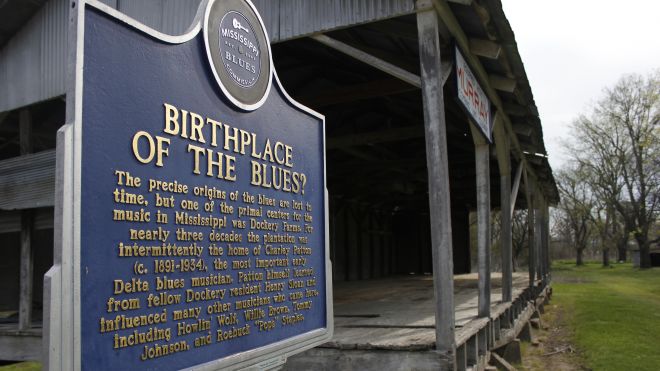
Photo courtesy of Google Images
During the past ten years, blues music has more than ever been in the forefront of today’s news. Through the past several years alone, we have seen the U.S. Congress take notice of this special art form by declaring a “Year of the Blues” because of it’s enormous impact to music in general.
A few years ago, a nation wide audience tuned in to PBS in order to watch Martin Scorsese’s epic that documented the evolution of blues music in America. In Mississippi, our governors have gotten involved starting with Governor Musgrove when he saluted this music with a proclamation called “Year of the Blues In State of Mississippi” almost ten years ago. During Barbour’s term, he and the Mississippi State Legislature created a comprehensive registry of all blues related sites and activities in the state that led to the Blues Trail. Barbour also recognized the blues in several other ways when he was governor. Now, Governor Phil Bryant is also doing the same.
Although our great state is blessed to have many talented musicians from all genres of music, if it weren’t for the blues musicians of the Mississippi Delta and the east Mississippi hill country, this music would have never existed. Blues music is the root form to all popular music in the Western Hemisphere. For without this special music, the world would have never heard of an Elvis Presley, The Beatles, The Rolling Stones, Led Zeppelin, or anyone else. The significance of this music cannot be understated. The explosion that would spread all over the globe began in Clarksdale in June of 1901.
That year, Charles Peabody, from Harvard’s Peabody Museum, arrived in Coahoma County to begin archaeological excavations on several indian mounds located west of Clarksdale. After arriving in Clarksdale, Peabody hired a dozen or so men to help carry all of his equipment and other provisions from Clarksdale to the first mound about 15 miles away.
One Sunday morning on their walk to the first mound, Peabody’s workers started a “chant like” rhythm. One man would chant a few lines, then the others would answer back in a refrain. Peabody, who had some musical training, took out a piece of paper and began writing down the lyrics and also tried to make some musical transcriptions. Peabody’s notes were later published in the 1903 Journal of American Folk-Lore. His descriptions are the first we have of black music in the Mississippi Delta.
Forty years later, a second explosion would take place when two folk song collectors from the Library of Congress, Alan Lomax and John Work, traveled to the Delta with a tape recorder to record the music of the Delta that they had been hearing about, which by that point, had left the “chanting” stage and transformed into songs performed on acoustic guitars with bottleneck slides that would soon be labeled, blues music. These recordings eventually made their way onto records that were distributed worldwide providing inspiration to young musicians who in turn created another form of music from this root element that became rock music.
Has north Mississippi made a significant contribution to the U.S. and world? Absolutely. Our region has made many contributions to mankind. And, our great blues music is just the start of what we have contributed that has bettered America.
The list is very long and as a seventh generation Mississippian, I could not be any prouder of our great state, our accomplishments, and our people!
Scott Coopwood, a seventh generation Deltan, lives in Cleveland, Mississippi, with his wife Cindy and their three children. Scott is the publisher and owner of Delta Magazine, one of the South’s leading lifestyle publications, the Delta Business Journal, the first business publication in the Mississippi Delta; and Cleveland’s weekly newspaper, The Cleveland Current .
Email Scott Coopwood at scott@coopwood.net
